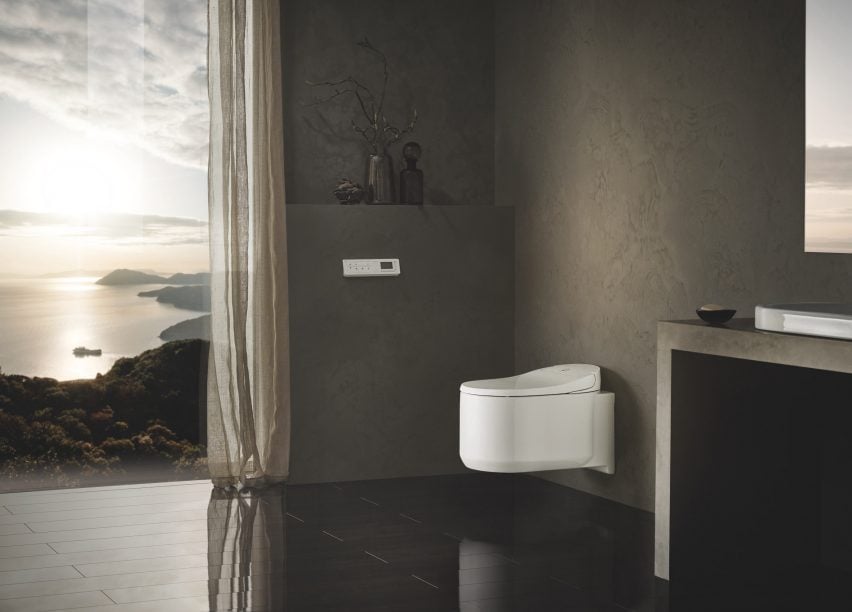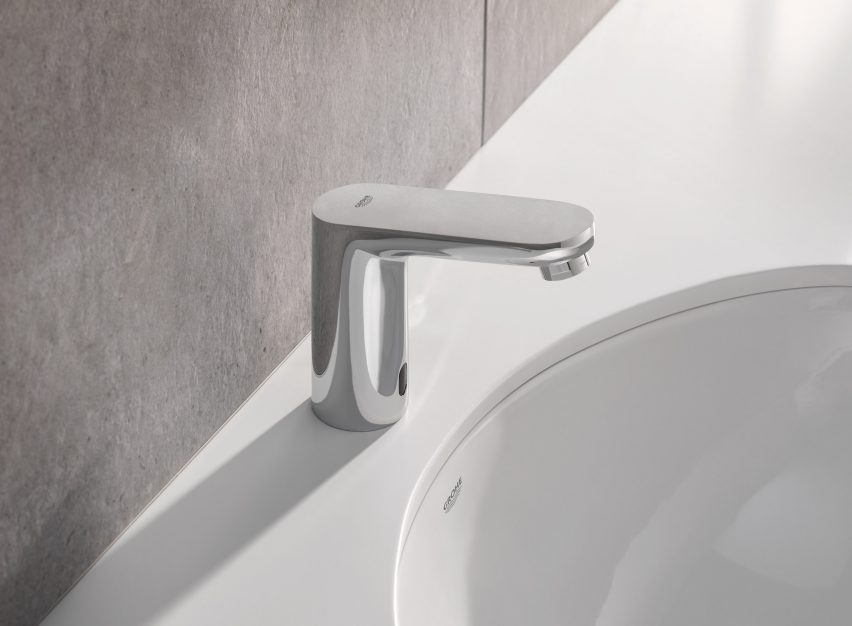
Buildings where you don't need to touch anything are "entirely feasible" says Paul Flowers
Demand for touchless products such as toilets and faucets is soaring as architects look to prevent the spread coronavirus in their buildings, according to Paul Flowers, chief design officer at water technology brand LIXIL.
Touchless products in bathrooms and kitchens combined with sensor-controlled doors and elevators mean that common areas of buildings could be entirely touchless, Flowers said.
"It is entirely feasible to create an environment which eliminates the need to touch surfaces," Flowers said. "Technology exists from automatic doors to sensor faucets, eliminating the need for physical interaction."
This could reduce the risk of people contracting viruses that can survive on surfaces. A recent study by the New England Journal of Medicine found that coronavirus particles can survive for up to three days on stainless steel and plastic, up to 24 hours on cardboard and around four hours on copper.

Flowers said LIXIL, a Japanese company that owns brands including INAX, Grohe and American Standard, had seen huge demand for its touchless bathroom and kitchen products, both from professionals and consumers.
"In the last eight or nine weeks we have seen an increased demand for solutions that can be operated touchlessly through sensor technology," said Flowers. "We are seeing a higher demand for our hygiene-enhancing products."
Other products that can be operated with foot switches or parts of the body such as elbows or wrists also help avoid the need to touch surfaces with hands.
Architects and building owners are increasingly specifying these products while enquiries are also coming from domestic customers who have seen sensor-controlled products in airports, hotels and other public spaces.
"We have customers coming to us asking to change out the faucets in their buildings to touchless ones," said Flowers. "Companies are keen to ensure the safety of their workforce and hygiene is top of the list."

The LIXIL group makes touchless products including faucets, showers and toilets. Grohe's Sensia Arena "shower toilets" feature lids that open and close automatically plus automated washing, drying and flushing functions.
"You walk into the bathroom and the toilet lid lifts automatically," said Flowers. "After use, it flushes and closes itself, eliminating the need to use your hands to operate the product. This advanced toilet also removes the need for toilet paper."
Flowers spoke to Dezeen ahead of a video interview about trends in bathroom and kitchen design, recorded as part of a collaboration between Dezeen's Virtual Design Festival and Grohe, which will be published on Tuesday 2 June.
"Whilst there are materials which are more resistant to bacteria and viruses, ultimately the best way to reduce cross-contamination is to remove the need for contact," Flowers added.
"Touchless products with sensor technology are ideal for this scenario and also reduce water consumption."
Grohe is headline sponsor of Virtual Design Festival.